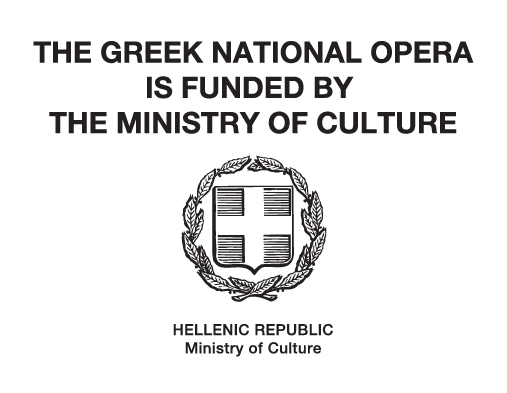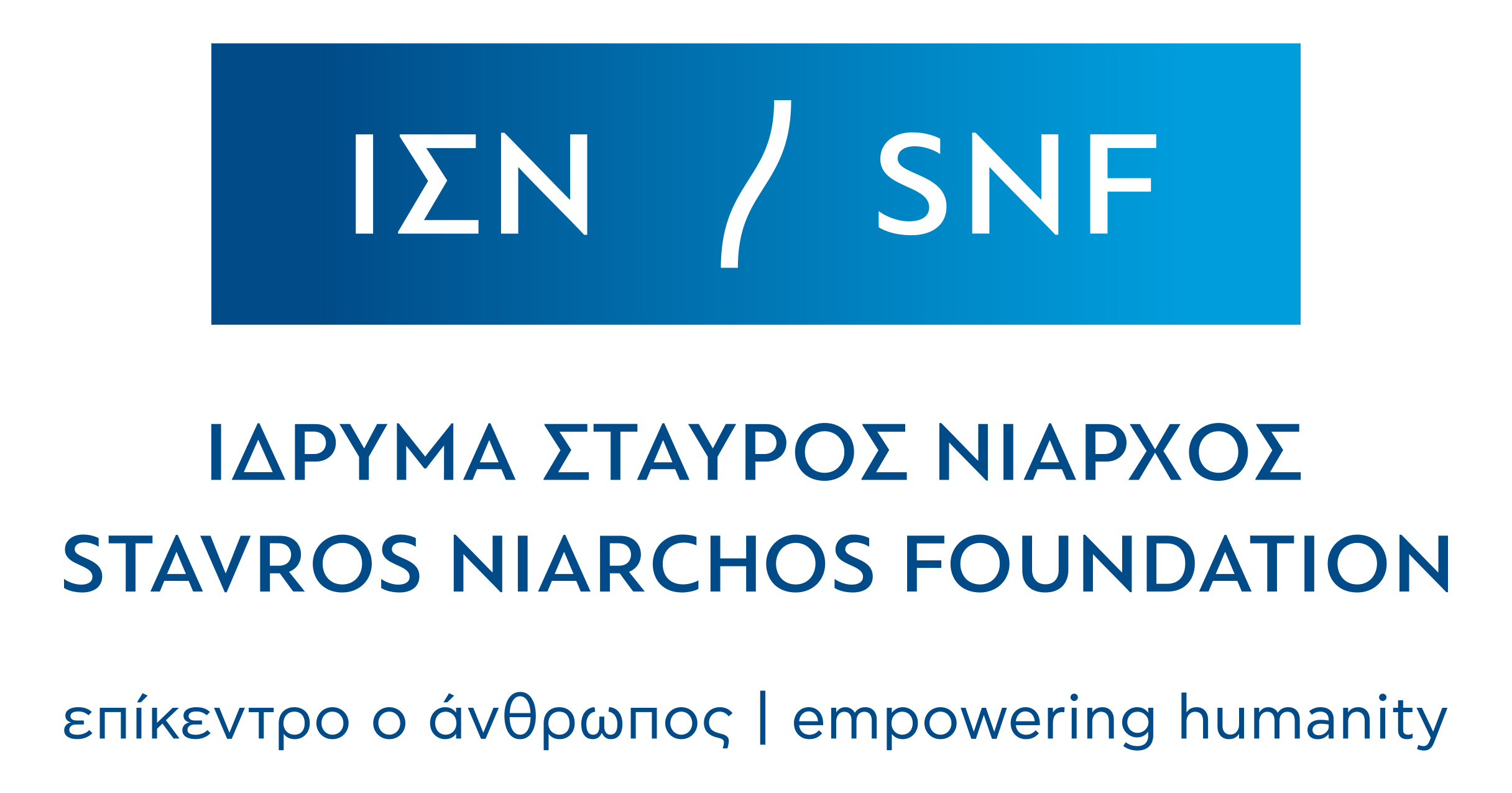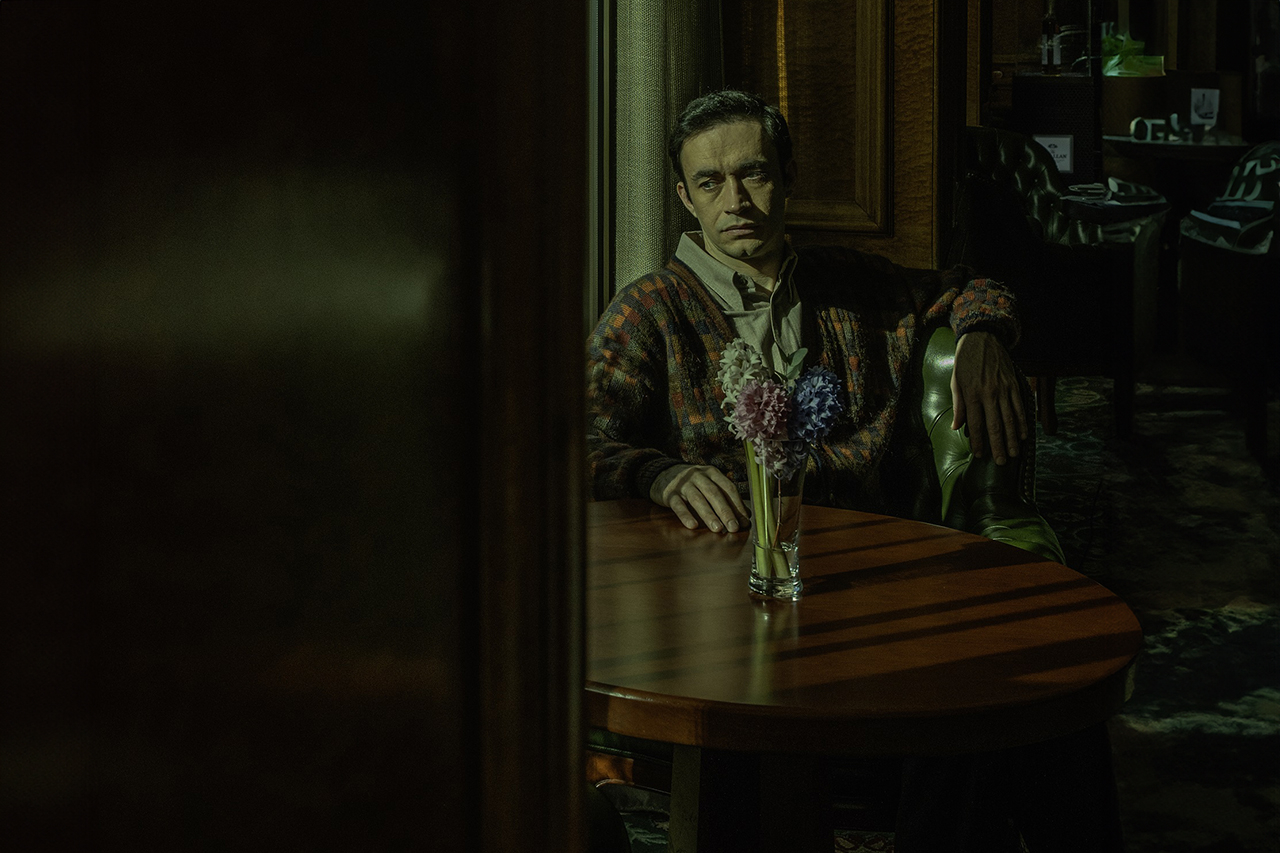
�
Alternative Stage founding donor�

�
Alternative Stage sponsor: PPC (Public Power Company)
�
�
�
�
After an extremely successful first run of sold-out performances, the music theatre production The Loser, based on the renowned Austrian writer Thomas Bernhard's novel of the same name, will return to the GNO Alternative Stage at the SNFCC from 9 October to 27 October 2024. The work brings to life a fictional story about one of the greatest pianists of the 20th century, Glenn Gould, adapted and directed by the always artistically restless director, actor, and filmmaker Ektoras Lygizos.
Written in 1983 in the author's well-known serpentine style, the novel Der Untergeher marked the German-speaking literature of the second half of the 20th century. The theatrical adaptation, based on Vassilis Tomanas' translation, transforms the monologic narration of the original into a music-theatre piece for four voices and piano.
The legendary Canadian pianist Glenn Gould and two Austrian former classmates of his who went through life as failed pianists, Bach's Goldberg Variations, the foyer of an abandoned hotel in Central Europe, and its owner, all compose a peculiar �oral musical� about genius, obsession and frustration.
The performance features a cast of distinguished actors: Aris Balis performs as the �failed� Wertheimer, Yiannis Niarros as Glenn Gould, Amalia Moutousi as the hotelier, and Ektoras Lygizos as the narrator.
�
A middle-aged man enters an abandoned hotel... �
... somewhere in the Austrian countryside. A few days earlier, he had received a telegraph notifying him that his friend, Wertheimer, had abandoned his nearby country house and had committed suicide. Waiting for the hotelier to show up, the anonymous narrator is overwhelmed by thoughts as he recalls facts and conversations from his significant friendship with Wertheimer and Glenn Gould, one of the greatest pianists of the 20th�century. Twenty-eight years before that, while the three of them were still aspiring pianist virtuosos, they attended a series of classes led by the famous Russian pianist Vladimir Horowitz. The narrator and Wertheimer's encounter with Gould was overpowering. Listening to him play Bach's�Goldberg Variations�in a class, the piece that made him rise to fame, they decided to give up the piano. The narrator begins working on a treatise about Glenn Gould, constantly tearing it up and rewriting it. Wertheimer, on the other hand, kept notes for an essay titled�The Loser�for decades. This nickname was given to him by Gould at the start of their acquaintance. Now, almost a year after the death of (the fictional) Gould at the age of 51 from a heart attack while playing�Goldberg Variations,�and just a few days after Wertheimer's suicide, the narrator, haunted by the presence of his deceased classmates, will meet the hotelier and former lover of Wertheimer. She will recount to him the last days of his friend before his suicide.
�
On the complex canvas...
... of this fictional friendship between a legendary Canadian clavichordist (as he called himself) and two embittered Austrians who lived their lives as failed pianists, Bernhard writes in his well-known erratic style a short novel that serves as a vitriolic treatise on envy, ambition, fame, genius, perfectionism, obsession, and frustration. Through stories of despair accompanied by endlessly caustic humor and a deep affection for all his wounded heroes, the author seems to build the entire story around the repetitive, circular structure of the�Goldberg Variations�(which consist of a short music theme and its thirty variations), portraying the characters' egocentricity, obsessive ideas, compulsions, and fixation on their unsurpassable dead ends in a tormenting yet delightful manner. Yet, at the same time, he doesn't neglect to relentlessly criticize the moral decay of post-war Austria, which, decades after the fall of Nazism and still imbued with cynicism and cruelty, continued to operate by the law of the absolute winner and desperate losers.
�
The place where the production is set...
... like in the novel's narrative present, is the foyer of an abandoned hotel in Central Europe, where the anonymous narrator unravels his repetitive thoughts while his two dead friends are constantly present around him like ghosts, reproducing conversations, aphorisms, and events of their common past. This fictional condition co-exists alongside the realistic portrayal of the narrator's encounter and conversations with the hotelier while the actor playing Gould constantly performs excerpts from the Goldberg Variations.
�
The key element of the production...
... is the constant interplay between spoken dialogue and music: in this context, the piano is reminiscent of the musical accompaniment of a dance lesson, while Bach's motifs intertwine with the spoken words, highlighting their musical qualities. Besides, making use of Gould's famous habit of humming the notes while playing the piano, the actors use this occasional humming as an extra-musical line in the productions' overall score, which moves in the intermediate space between prose and music theatre, thus composing a peculiar �oral musical�.
�
Kharálampos Goyós is the music consultant of the production. The set was designed by Myrto Lambrou, the costumes by Alkistis Mamali, the lighting by Dimitris Kasimatis, the make-up and hairstyle by Ioanna Lygizou, and the sound by Brian Coon, while Dimitris Mytilineos is in charge of the movement.
The cast consists of�Aris Balis, Yiannis Niarros, Amalia Moutousi, Ektoras Lygizos.
�
�
Thomas Bernhard, Der Untergeher, in: ders., Werke 6, 1983 � Suhrkamp Verlag AG, Berlin
�
�
�
Fully accessible performances of The Loser
The music theatre production The Loser will be fully accessible on October 13th, 17th, and 19th, 2024, in collaboration with ATLAS E.P., to provide an inclusive audiovisual experience for all audiences. In this context, there will be designated seats for individuals who are deaf or hard of hearing and use Greek Sign Language, places for those who rely on captions (CAPS) covering the entire audio channel, as well seats for individuals who are blind or have limited access to the visual channel of communication and use the audio description (AD) service. Guide dogs for the visually impaired will also be permitted.
The full accessibility services for the production The Loser are part of the series of events All Together At the Opera, which is implemented with the support of Alpha Bank.
Audience members who wish to use the accessibility services are requested to purchase their tickets at the GNO Box Office, over the phone at 2130885700, or via email at This email address is being protected from spambots. You need JavaScript enabled to view it.. If you need assistance with your reservation, you can also contact ATLAS E.P. at 6993507553 or via email at This email address is being protected from spambots. You need JavaScript enabled to view it..
�
All Together at the Opera�is sponsored by
![]()
�
�
�
The production �THE LOSER� is part of the GNO Alternative Stage's unit of programming titled �MUSIC THEATRE DAYS�, which falls under the ACT �FESTIVAL EVENTS OF THE GNO ALTERNATIVE STAGE 2024-2025� � (MIS 6002467) with code 2024��08570049 (Priority: �Fostering regional social cohesion through the enhancement of mechanisms and infrastructure to support employment, education, health care and socioeconomic inclusion� of the programme �Attica 2021-2027) and is co-financed by the European Regional Development Fund (ERDF) and National Resources.
�
















